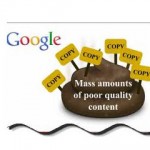 San Francisco — In a stunning move over the weekend when popular social media giant Facebook Inc. pulled the plug on its Groupon-like discount “Deals” offering just after four months of testing in the coming weeks, a move that may reduce some competitive pressure on industry leaders Groupon and LivingSocial. But the company says it will retain its “Check-in Deals.”
San Francisco — In a stunning move over the weekend when popular social media giant Facebook Inc. pulled the plug on its Groupon-like discount “Deals” offering just after four months of testing in the coming weeks, a move that may reduce some competitive pressure on industry leaders Groupon and LivingSocial. But the company says it will retain its “Check-in Deals.”
“After testing Deals for four months, we have decided to discontinue our Deals product in the coming weeks,” the company said in a statement emailed to Reuters.
Facebook Deals, which was introduced in mid April, which offered consumers in a handful of locations limited-time deals that stressed on social experiences. For instance, a consumer in Austin could purchase an “All Access Experience” for an Austin City Limits Live concert that provides backstage passes for two, sound check access, a catered dinner and tickets for the show.
“We think there is a lot of potentiality in a social approach to alluring people into local businesses. We remain committed to building products to help local businesses connect with people, like Ads, Pages, Sponsored Stories, and Check-in Deals. We have learned a lot from our test and we will continue to evaluate how to best serve local businesses,” says a spokeswoman for the social media network.
Facebook’s daily deals service has largely been criticized for the quality of the offers it bundled for social events and group activities, the level of discounts and lack of aggressive promotion by Facebook. Considering the brief window of opportunity for Deals to gain traction, it seems Facebook was not totally geared up to go all out to prop up a non-core service until it showed signs of life.
Deals sites, in which businesses pour money into the pockets of middlemen so they can offer speculative discounts for Brazilian waxes, are the engine-room of the current dotcom bubble. Facebook’s market test took place in Atlanta, Austin, Dallas, San Diego and San Francisco.
Facebook Deals was promoted as a competitor to Groupon and LivingSocial in five cities and as well as flogging offers secured by its own sales team with local merchants, besides, the company added an extra layer of middleman into the deals business by on-selling offers set up by 11 other daily deal companies, including ReachLocal, Gilt City and Zozi.
“It is surprising that Facebook terminated their deals product after just four months,” said Vinicius Vacanti, co-founder of Yipit.com, which accumulates daily deals and tracks the industry. “On the other hand, Facebook Deals had been an underwhelming product and experience.”
Facebook itself admitted it “learned a lot” from the test and will continue to try to figure out how to best cater to local businesses. It is also maintaining Check-in Deals, which offer free mobile coupons users can get by checking into local venues via their handsets. (Facebook Deals are pre-paid coupons, purchased on Facebook with Credits or a payment card.)
However, Facebook’s decision not to follow the business may mean the company thinks the approach lacks excellence.
Putting a brave face on the flop, Facebook told Reuters it will “continue to evaluate how to best serve local businesses”. Facebook says that it is refocusing its efforts on offering local businesses other marketing opportunities, such as its Marketplace ads, which recently began enabling advertisers to target consumers based on their ZIP codes.
“The Groupon group buying phenomenon is a commodity. There are no barriers to entry. It is just not going to work because everybody offers it and therefore the margins go down,” said Jeremiah Owyang, a partner at research firm Altimeter Group.
The termination of Facebook Deals is “certainly good” for Groupon and other daily deal services, Vacanti said.
“I do not believe this means daily deals are not a viable business,” he added. “It more suggests that large media and tech companies can not just ‘turn on’ daily deals and expect them to work. It has to be more thoughtfully integrated into their existing product.”
“Facebook is executing some major re-thinking around local,” Vacanti said.
Nevertheless, Facebook’s departure means Groupon has one less major competitor as it prepares for a $750 million initial public offering later this year.


